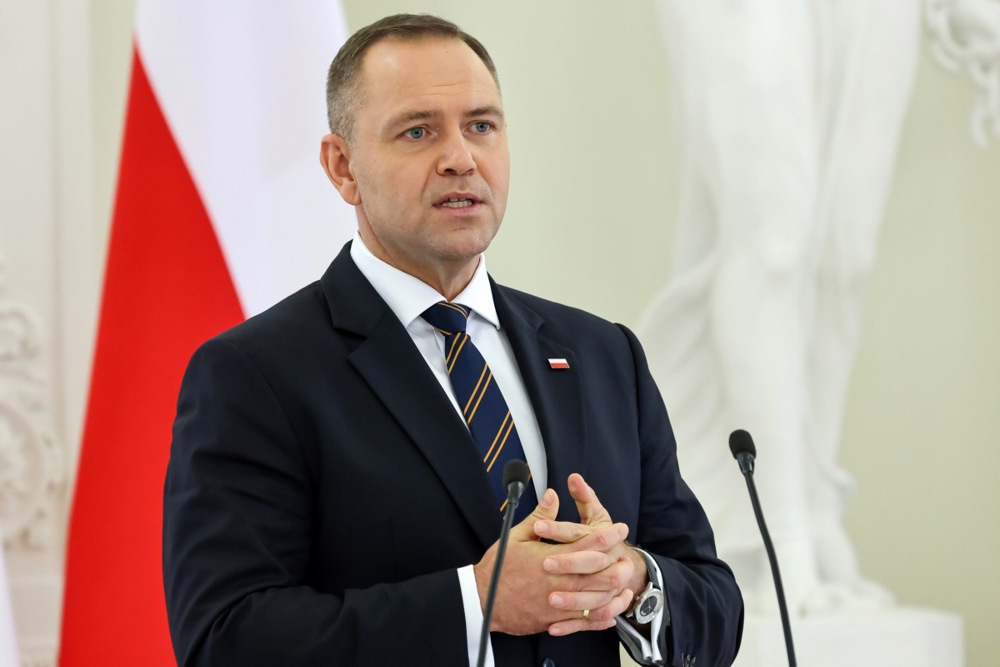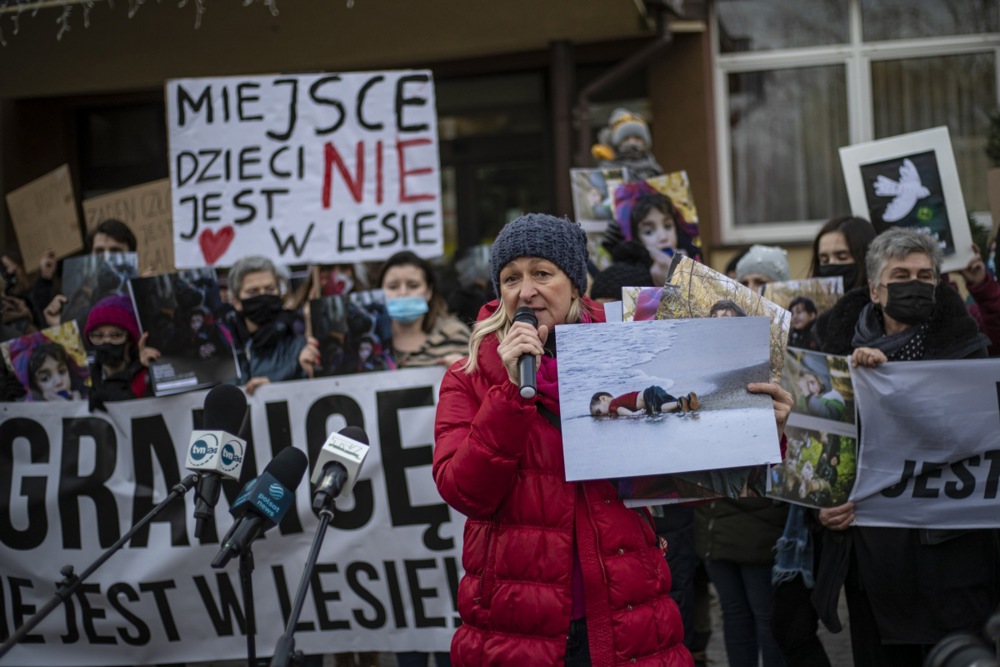A young mother who participated in a protest against illegal migration has been indicted for using the word “murzyn“, a traditional Polish term for a black person, as an incitement to racial hatred.
Oliwia Olejniczak, who attended a demonstration in the south-eastern city of Zamość on July 19 and is a member of a right-wing youth organisation, faces up to three years in prison if convicted.
According to the prosecution service, the young woman made “a public call at the rally to hatred on the grounds of racial and religious differences”.
The word murzyn and is one of the oldest words in the Polish language, recorded as early as the 14th century, with linguists divided on whether it is offensive.
It originated during translations of the Bible into Polish as one of the renderings of the Latin name maurus and is therefore closely related to the word “Moor”, a Muslim inhabitant of North Africa and Spain during the Middle Ages.
“I did not incite hatred, I expressed my concerns about mass migration. The situation affects us and has an impact on the child,” Olejniczak told Polish portal Niezależna yesterday.
She denied that she had used the term murzyn in a derogatory manner.
“I used it in the context that soon black people would be brought to Poland, to Zamość, people from a different culture than ours. I did not incite hatred, I did not say that these people are bad because of their skin colour.
“But they are raised in a different cultural environment, where there are different norms.”
Olejniczak said she felt that people in Poland had a right to choose who comes into their country.
“We do not want these norms in Poland. I am not claiming that every black person is a criminal. However, one must note that in Western Europe, crime rates are rising and are much higher among black people,” she said.
She added that was concerned about how being indicted was affecting her daily and family life.
“I have a baby under one year old. I am shocked by the charges. The whole situation affects us deeply. I didn’t expect the prosecutor’s office to go after a young mother just for expressing her concerns about mass immigration.
“A mother’s stress naturally affects her child, especially such a small one,” she said.
According to Olejniczak, her case raises questions about freedom of speech.
“I think the government is wanting to intimidate, being strong against the weak and weak against the strong. If they can take it out on a mother with a child, no one can feel completely safe expressing opinions that differ from those of the ruling party,” she added.
The centre-left government led by Prime Minister Donald Tusk has attempted to introduce more legislation on hate speech and has instructed prosecutors to pursue cases of alleged incitement of racial hatred during recent protests against push-backs of illegal migrants from Germany.
Polish opposition Conservatives (PiS)-aligned President Karol Nawrocki has this month vetoed legislation increasing the number of categories of protected persons. They now include the LGBT community but, as the example of Olejniczak’s indictment demonstrates, current legislation is more than sufficient for the authorities to prosecute people for such alleged hate speech.





